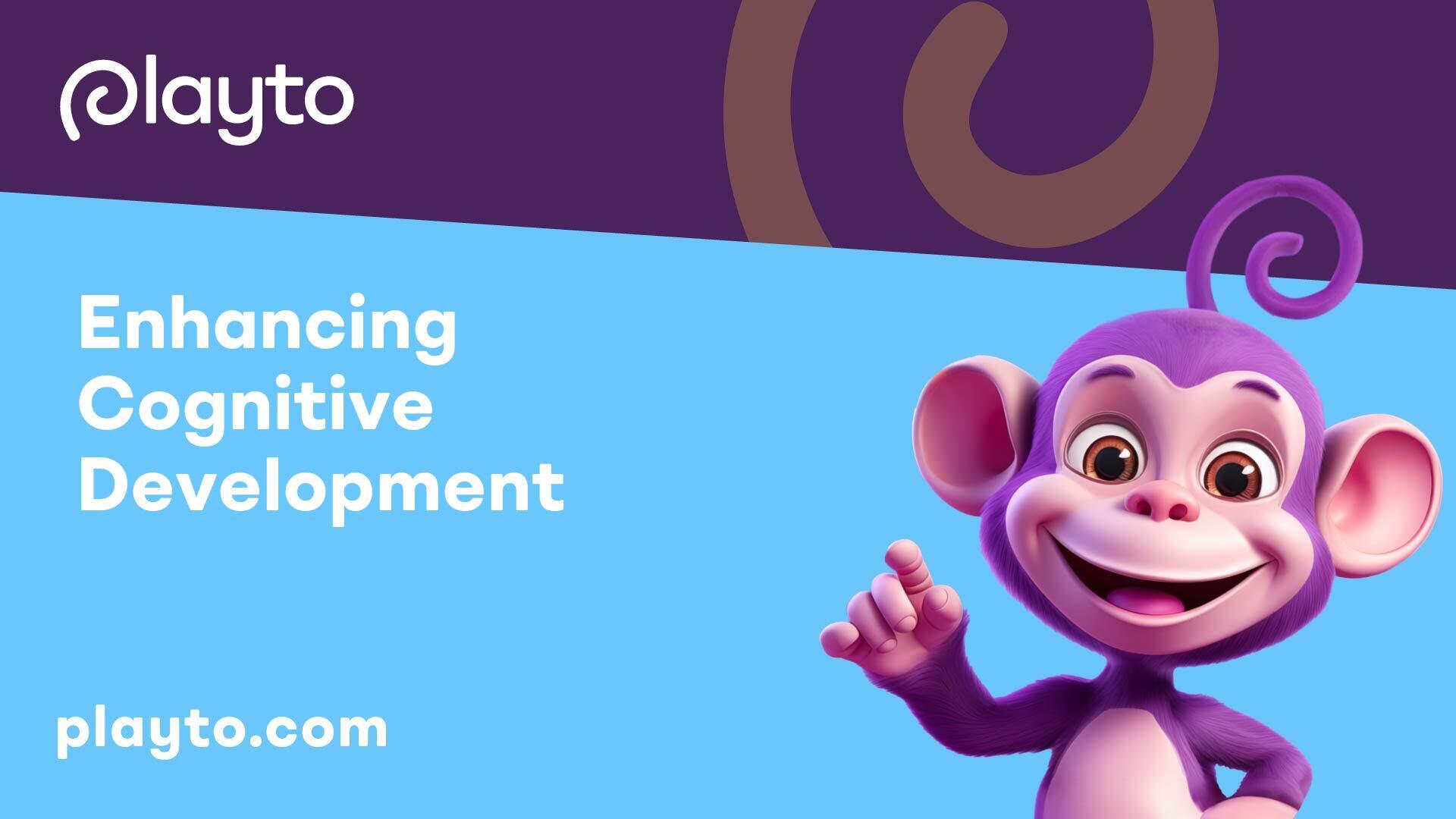
Importance of Drama in Early Education
In early education, the role of drama and role-play holds significant value in supporting children's development across various domains. One key aspect is the opportunity it provides for children to explore and understand themselves through play, fostering self-awareness and personal growth.
Exploring Self through Play
Dramatic play, often referred to as pretend play, involves acting out real-world scenarios and assuming different roles. This form of play allows children to step into various characters, experiment with different identities, and navigate social interactions in a safe and imaginative environment [1]. Through this process, children can explore their emotions, thoughts, and behaviors, promoting self-discovery and self-expression.
Engaging in dramatic play scenarios enables children to develop a sense of self-confidence as they embody different roles and experiment with diverse personas. This exploration of self through play lays the foundation for building a strong self-concept and self-esteem, essential for overall well-being and social interaction.
Promoting Social Skills
Furthermore, drama and role-play play a crucial role in promoting social skills among young learners. By engaging in collaborative dramatic activities, children learn to communicate effectively, negotiate roles, and cooperate with their peers [2]. These interactions help children develop empathy, perspective-taking, and conflict resolution skills, essential for navigating social relationships both in and out of the classroom.
Parents and caregivers also play a vital role in nurturing social skills by encouraging and participating in children's pretend play experiences [3]. By joining children in their imaginative play scenarios, adults can model positive social behaviors, reinforce communication skills, and strengthen bonds with their children.
Incorporating dramatic play into early education settings not only enhances children's social development but also cultivates a sense of community and belonging. Through collaborative role-playing activities, children learn to appreciate diverse perspectives, practice empathy, and build meaningful connections with their peers.
By recognizing the importance of drama in early education, educators and caregivers can create enriching learning experiences that support children's holistic development, encourage self-exploration, and nurture essential social skills for future success.

Benefits of Dramatic Play
Exploring the realm of dramatic play in early education reveals a multitude of benefits for young children. Whether engaging in structured or unstructured play scenarios, children can develop crucial skills that aid in their emotional regulation, conflict resolution abilities, and literacy development.
Emotional Regulation
Dramatic play serves as a platform for children to express and manage their emotions effectively. Through role-playing different scenarios, children learn about emotions, empathy, and appropriate ways to express their feelings. This process of emotional exploration and regulation can support children in understanding and coping with their own emotions and those of their peers.
Conflict Resolution Skills
Participating in dramatic play facilitates the development of essential conflict resolution skills in children. As they engage in make-believe situations and encounters, they learn to navigate conflicts, negotiate with others, and find mutually acceptable solutions. By practicing conflict resolution in a safe and controlled environment, children build the foundation for resolving conflicts in real-life situations.
Literacy Development
An often-overlooked aspect of dramatic play is its positive impact on literacy development. By acting out scenes from favorite storybooks or creating their narratives, children actively engage with narratives, characters, and plotlines. This immersive storytelling experience enhances their reading comprehension, understanding of narrative structures, character motivations, and overall appreciation for literature.
The role of dramatic play in boosting emotional regulation, conflict resolution skills, and literacy development underscores its significance in early education. By integrating dramatic play into learning environments, educators and parents alike can nurture well-rounded individuals who are equipped with essential social, emotional, and cognitive skills from a young age.

Enhancing Cognitive Development
In the realm of early education, leveraging drama and role-play can significantly enhance cognitive development in children. This section will delve into how dramatic play fosters problem-solving skills and nurtures creative thinking abilities.
Problem-Solving Skills
Engaging in dramatic play provides children with opportunities to navigate and solve various challenges in a fun and imaginative setting. According to Penn Foster, through dramatic play, children learn to solve problems, coordinate actions with peers, enhance decision-making skills, and think flexibly. For instance, transforming a simple sandbox into a dinosaur bone excavation site requires problem-solving abilities and creative thinking.
By immersing themselves in different roles and scenarios, children learn to think critically, evaluate situations, and develop strategies to overcome obstacles. These problem-solving skills cultivated through dramatic play are crucial for their cognitive development and future academic success.
Creative Thinking Abilities
Dramatic play stimulates children's imagination and encourages them to think outside the box. As noted by Bright Horizons, role-playing scenarios allow children to explore new ideas, experiment with various solutions, and express themselves creatively. Whether pretending to be superheroes, doctors, or chefs, children engage in make-believe situations that spark their creativity and innovation.
Through imaginative play, children develop the ability to generate novel ideas, visualize scenarios, and apply original thinking to different scenarios. This creative thinking not only enhances their cognitive abilities but also fosters a sense of innovation and adaptability that can benefit them in various aspects of their lives.
Incorporating dramatic play into early education programs offers a rich and dynamic environment for children to hone their problem-solving skills and unleash their creative thinking abilities. By encouraging children to engage in imaginative role-play, educators can support their cognitive development and pave the way for a future generation of innovative thinkers and problem solvers.
Supporting Child Development
For children in New York, the role of drama and role-play in early education is invaluable for their overall growth and development. This section focuses on the essential roles that teachers and parents play in supporting child development through dramatic play, as well as the emotional and social skills that children can enhance through these activities.
Teacher and Parental Roles
Educators and parents in New York have a significant impact on fostering children's development through dramatic play. According to WGU Blog, encouraging dramatic play in both classroom and home settings is crucial for children's development. Teachers can provide a conducive environment that encourages imaginative play, offer thematic prompts, and actively engage with children during pretend scenarios. On the other hand, parents can support and participate in children's play activities, further enhancing their learning and development.
By working collaboratively, teachers and parents can create a nurturing space where children can explore their creativity, expand their imagination, and develop crucial cognitive and social skills through role-playing and dramatic activities. This partnership plays a vital role in reinforcing positive learning experiences and facilitating holistic growth in children.
Emotional and Social Skills
In the context of New York, drama and role-play activities have a profound impact on the emotional and social skills of children. Drama education offers a platform for children to express emotions, form emotional connections with their learning experiences, develop empathy, and enhance perspective-taking skills.
Engaging in dramatic play allows children to explore various scenarios, navigate social interactions, understand different viewpoints, and collaborate with their peers. Through these experiences, children in New York can develop essential skills such as communication, creativity, critical thinking, confidence, and self-expression. Additionally, drama fosters language development, personal and social awareness, and self-reflection, contributing to the holistic development of children [2].
By actively participating in dramatic play, children can strengthen their emotional intelligence, improve their social skills, and build a foundation for effective communication and collaboration. Teachers and parents play a crucial role in guiding children through these experiences, providing support, encouragement, and opportunities for growth in both emotional and social domains.
Role of Technology in Dramatic Play
In the realm of early education, technology can play a vital role in enhancing the impact of drama and role-play on children's development. By leveraging technology as a tool for learning, educators can provide supplementary resources and create virtual role-play platforms that engage young minds in innovative ways.
Supplementary Learning Tools
Technology offers a plethora of supplementary learning tools that can enrich the dramatic play experiences of children. These tools range from interactive apps and educational games to virtual storytelling platforms. By incorporating these digital resources into the curriculum, teachers can introduce new elements of creativity and engagement to the learning process.
Such tools not only stimulate imagination and creativity but also help children develop critical thinking skills and problem-solving abilities. By immersing themselves in digital scenarios and narratives, children can explore diverse perspectives and enhance their cognitive development.
Virtual Role-Play Platforms
Virtual role-play platforms are emerging as a dynamic way to bring dramatic play into the digital age. These platforms provide interactive environments where children can assume different roles, engage in storytelling, and collaborate with their peers in virtual settings. By stepping into virtual scenarios, children can enhance their social and emotional skills while honing their communication and teamwork abilities.
Moreover, virtual role-play platforms offer a safe space for children to experiment with various identities and explore complex social dynamics. Through digital role-playing, children can develop empathy, perspective-taking skills, and a deeper understanding of human interactions.
Integrating technology into dramatic play not only expands the horizons of traditional play-based learning but also aligns with the evolving needs and preferences of modern learners. By embracing digital tools and virtual platforms, educators can create dynamic and immersive learning experiences that captivate young learners and foster holistic development.
Drama and Cognitive Development
In the realm of early education, drama plays a vital role in nurturing cognitive development in children. Exploring the cognitive aspects of drama and role-play sheds light on how these activities impact young minds, focusing on cognitive structures in play and the development of symbolic understanding in children.
Cognitive Structures in Play
Pretend play, a fundamental element of drama and role-play, is theorized to share cognitive structures with essential cognitive and social abilities. According to Dr. Deena Skolnick Weisberg in 2015, engaging in pretend play helps children develop skills such as symbolic understanding, theory of mind, and counterfactual reasoning [3]. Through imaginative play scenarios, children engage in problem-solving, creative thinking, and decision-making, fostering cognitive flexibility and adaptability.
By immersing themselves in different roles and situations, children stretch their cognitive abilities, enhancing their capacity to think abstractly, anticipate consequences, and navigate complex social interactions. The cognitive challenges presented in dramatic play scenarios provide rich learning experiences that stimulate brain development and cognitive growth.
Symbolic Understanding in Children
Another significant aspect of drama in early education is its role in developing symbolic understanding in children. Symbolic play, where objects or actions represent something else, is a cornerstone of dramatic play. Through role-playing and creating make-believe scenarios, children learn to use symbols to convey meaning and represent abstract concepts.
Engaging in symbolic play nurtures children's creativity, language skills, and symbolic thinking abilities. As children assign roles, attributes, and actions to different characters or objects, they engage in symbolic representation, laying the groundwork for advanced cognitive processes. Symbolic understanding cultivated through drama empowers children to express themselves, communicate ideas, and make sense of the world around them.
By fostering cognitive structures in play and promoting symbolic understanding in children, drama education enriches early learning experiences and cultivates a strong foundation for cognitive development. Embracing drama and role-play in educational settings provides young learners with the tools to explore, create, and engage with the world in meaningful and imaginative ways, nurturing their cognitive abilities and shaping their cognitive growth positively.
Implementing Drama in Education
When it comes to integrating drama into education, fostering pretend play and discerning between structured and unstructured play are fundamental aspects for educators and parents to consider. These elements play a pivotal role in enhancing children's learning experiences and nurturing their creativity and social skills.
Encouraging Pretend Play
Encouraging children to engage in pretend play not only cultivates their imagination but also promotes cognitive development and social skills. By creating imaginary scenarios and assuming various roles, children explore different perspectives and emotions, enhancing their empathy and communication abilities. According to insights from WGU Blog, providing children with the space and tools for dramatic play allows them to express themselves freely and learn through creative exploration.
Pretend play offers children a safe environment to experiment with different roles, scenarios, and problem-solving strategies. It fosters language development and critical thinking as children engage in storytelling and dialogue to navigate their imaginary worlds. By supporting and encouraging pretend play, educators and parents can unlock children's potential for creativity, self-expression, and emotional intelligence.
Structured vs. Unstructured Play
In the realm of drama and education, striking a balance between structured and unstructured play is essential for maximizing learning opportunities. Structured play involves activities guided by specific rules or objectives, providing a framework for children to follow. On the other hand, unstructured play allows for open-ended exploration and self-directed learning, giving children the freedom to shape their play experiences.
Teacher Academy highlights that drama education encompasses various activities, including role-playing games like "the shops" or "Mums and Dads," which naturally occur among children from a young age. These theatrical activities enable children to process societal norms, relationships, and emotions, fostering their social and emotional development through subconscious understanding.
By incorporating both structured and unstructured elements of play, educators can create a dynamic learning environment that stimulates children's creativity, critical thinking, and collaboration skills. Structured activities provide a sense of organization and purpose, while unstructured play encourages spontaneity and exploration. Balancing these approaches ensures that children benefit from a well-rounded drama education that nurtures their holistic development.
Dramatic Play in Classroom Settings
Dramatic play in classroom settings plays a vital role in the development of young learners, fostering essential skills that prepare them for various real-life situations. Within the classroom environment, dramatic play provides a platform for children to engage in problem-solving activities and enhance their arithmetic learning skills.
Learning Problem-Solving
One of the key benefits of dramatic play in classroom settings is its ability to promote problem-solving skills among children. When children participate in role-playing scenarios, they are required to think critically, make decisions, and navigate through challenges creatively. For example, transforming a sandbox into a dinosaur bone excavation site not only sparks imagination but also encourages children to collaborate, think flexibly, and solve problems together.
Through dramatic play, children learn to negotiate, communicate effectively, and find solutions to everyday obstacles, laying a strong foundation for their cognitive development and preparing them for future academic endeavors and social interactions.
Enhancing Arithmetic Learning
Moreover, dramatic play significantly contributes to enhancing children's arithmetic learning within classroom settings. By integrating math-related activities into play scenarios, children engage in activities that involve counting items, recognizing numbers, performing basic mathematical operations, understanding patterns, sequences, and solving mathematical problems in an interactive and enjoyable manner.
For instance, setting up a pretend grocery store or a restaurant in the dramatic play area allows children to practice measurements, count money, organize items based on numerical order, and understand basic arithmetic concepts through hands-on experiences. These activities not only strengthen children's mathematical skills but also foster a positive attitude towards learning and problem-solving in an engaging and immersive environment.
By incorporating dramatic play into classroom settings, educators can create dynamic learning opportunities that enhance children's problem-solving abilities and mathematical proficiency, promoting a holistic approach to early education that nurtures both cognitive and social-emotional development.
References
[1]: https://www.rasmussen.edu/degrees/education/blog/why-dramatic-play-matters/
[2]: https://www.teacheracademy.eu/blog/drama-education/
[3]: https://www.brighthorizons.com/resources/Article/Importance-of-Pretend-Play-in-Child-Development
[4]: https://www.pennfoster.edu/blog/benefits-of-dramatic-play-in-ece
